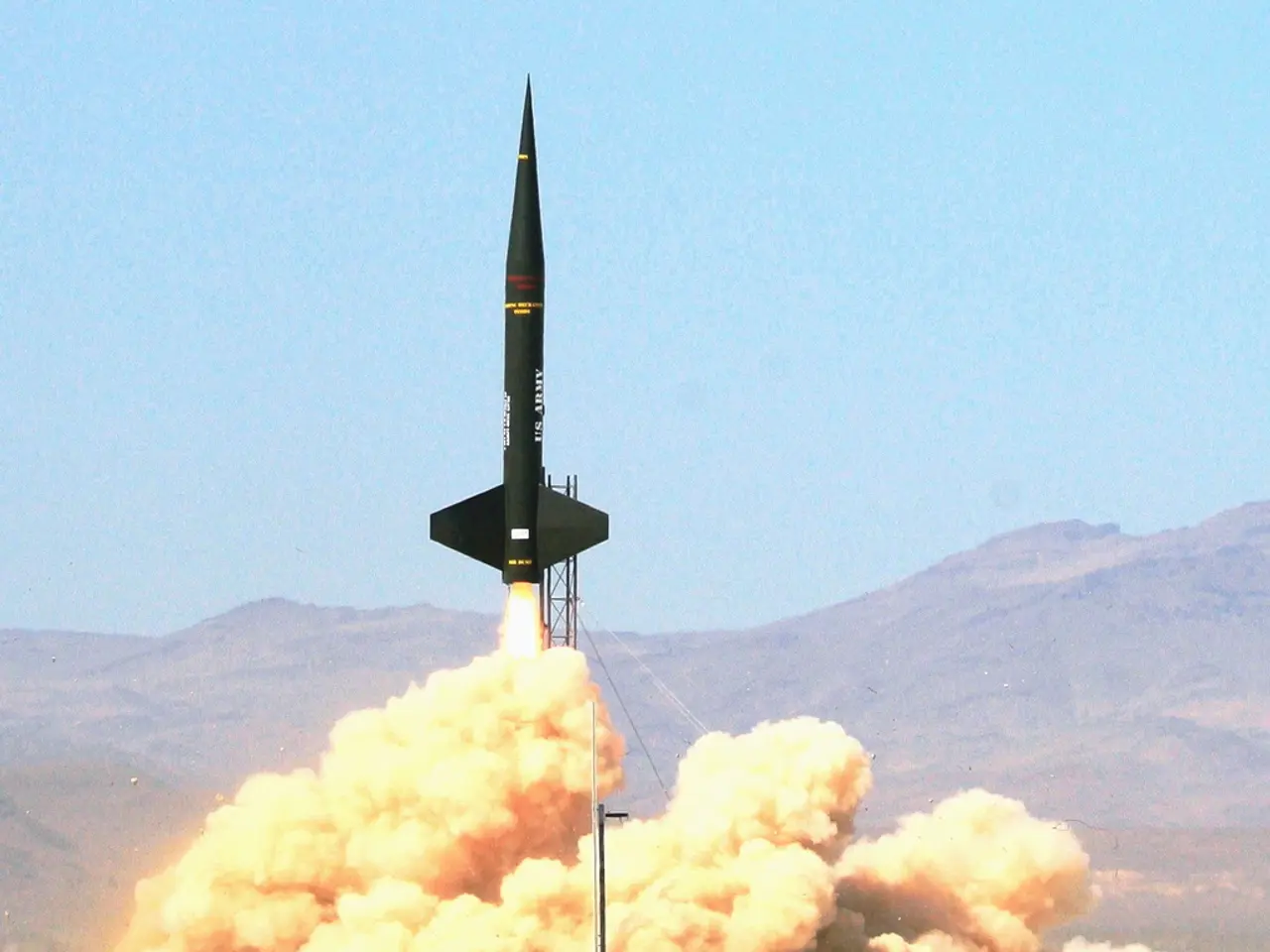British firm Skyrora receives approval for domestic space launches from UK authorities
Skyrora Secures Launch License for Suborbital and Orbital Rocket Flights from SaxaVord Spaceport
Skyrora, a UK-based space company, has secured a significant milestone with the approval of a launch license from the UK Civil Aviation Authority (CAA) for up to 16 rocket launches per year from the SaxaVord Spaceport in the Shetland Islands. This marks the first time a vertical launch license has been granted to a UK-based company [1][2][3][4].
The license allows Skyrora to commence vertical suborbital launches as early as Q1 2026, with plans for orbital launches to follow after successful initial flights [1][2]. The first launch is expected to be the Skylark L suborbital rocket, although the exact launch date remains undetermined, with some sources suggesting it could be as soon as May 2026 or later in 2026 [1][2].
Skyrora has been making progress towards testing, with plans for first-stage fire testing in 2025 [3]. However, the company faces limitations due to the limited availability of launch pads at SaxaVord, as other companies like Rocket Factory Augsburg (RFA) and Orbex are also developing launches there [1][2][3][4].
In light of potential delays at SaxaVord, Skyrora has options to launch from alternative international sites such as Australia, Oman, and potentially Iceland again, which might allow earlier launches if SaxaVord pad availability proves to be a challenge [1][5]. These alternative sites offer flexibility, enabling Skyrora to perform launches before the SaxaVord pad is ready or if UK regulatory or infrastructural constraints persist [1][4][5].
Skyrora has previously launched a rocket from Iceland’s mobile Langanes launch site in 2022, although that launch did not go as planned [1]. Despite this setback, the company remains committed to its plans for launches from SaxaVord Spaceport.
It's worth noting that RFA, another European company, received an orbital launch license from the UK CAA in January, allowing up to 10 launches per year [1][2]. Germany's Isar Aero made an unsuccessful first orbital launch attempt from the European mainland in late March [1].
Skyrora's CEO, Volodymyr Levykin, expressed his gratitude for the license, stating, "This is a testament to the hard work and dedication of everyone at Skyrora. The UK has the potential to become a major player in the global space industry, and this license is a significant step towards achieving that goal" [1]. Levykin also emphasized the importance of the UK having sovereign launch capabilities for both commercial and strategic defense reasons.
In addition to Skyrora, Orbex, another UK-based space company, was chosen for the European Launcher Challenge [1]. Both companies are part of a growing UK space industry that is poised to make significant contributions to the global space sector.
[1] SpaceNews (2023). Skyrora secures UK launch license for suborbital and orbital rocket flights. Retrieved from https://spacenews.com/skyrora-secures-uk-launch-license-for-suborbital-and-orbital-rocket-flights/
[2] Space.com (2023). Skyrora secures UK launch license for suborbital and orbital rocket flights. Retrieved from https://www.space.com/skyrora-secures-uk-launch-license-for-suborbital-and-orbital-rocket-flights
[3] BBC News (2023). Skyrora secures UK launch license for suborbital and orbital rocket flights. Retrieved from https://www.bbc.co.uk/news/science-environment-64699049
[4] The Guardian (2023). Skyrora secures UK launch license for suborbital and orbital rocket flights. Retrieved from https://www.theguardian.com/science/2023/mar/12/skyrora-secures-uk-launch-license-for-suborbital-and-orbital-rocket-flights
[5] Space Daily (2023). Skyrora secures UK launch license for suborbital and orbital rocket flights. Retrieved from https://www.spacedaily.com/reports/Skyrora_secures_UK_launch_license_for_suborbital_and_orbital_rocket_flights_999.html
The Skyrora's upcoming launches from the SaxaVord Spaceport will contribute to the UK's space industry, as it aims to become a key player in the global space sector [1][2][3][4]. The successful orbital launches will mark a significant advancement in the country's history [1]. Meanwhile, global space developments in the fields of business, science, and technology will likely be affected by these advancements [1]. Additionally, the rise of European companies like Skyrora and RFA in the space-and-astronomy sector could have far-reaching environmental implications, as more countries gain access to satellite technology for diverse purposes [1][2][3][4].




